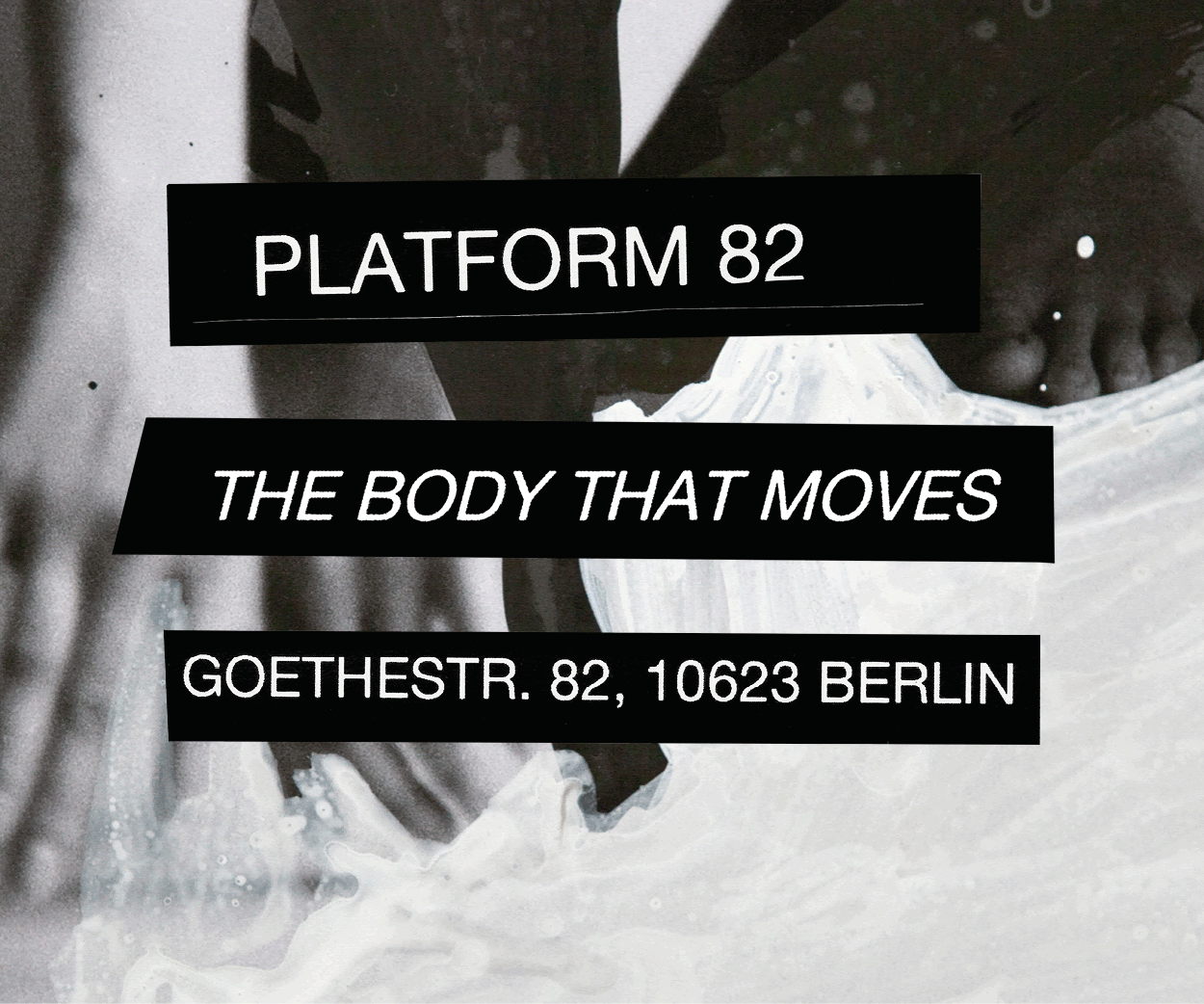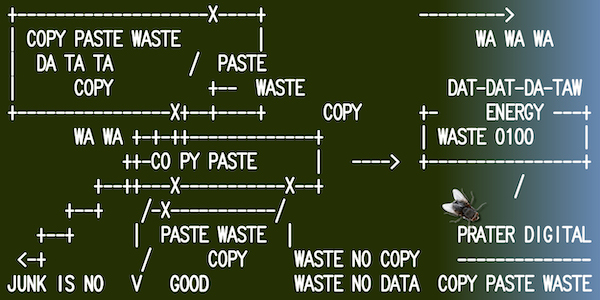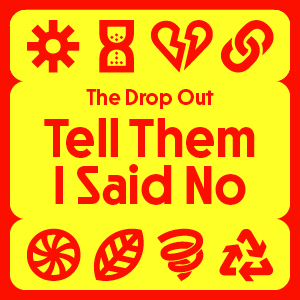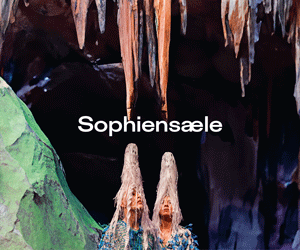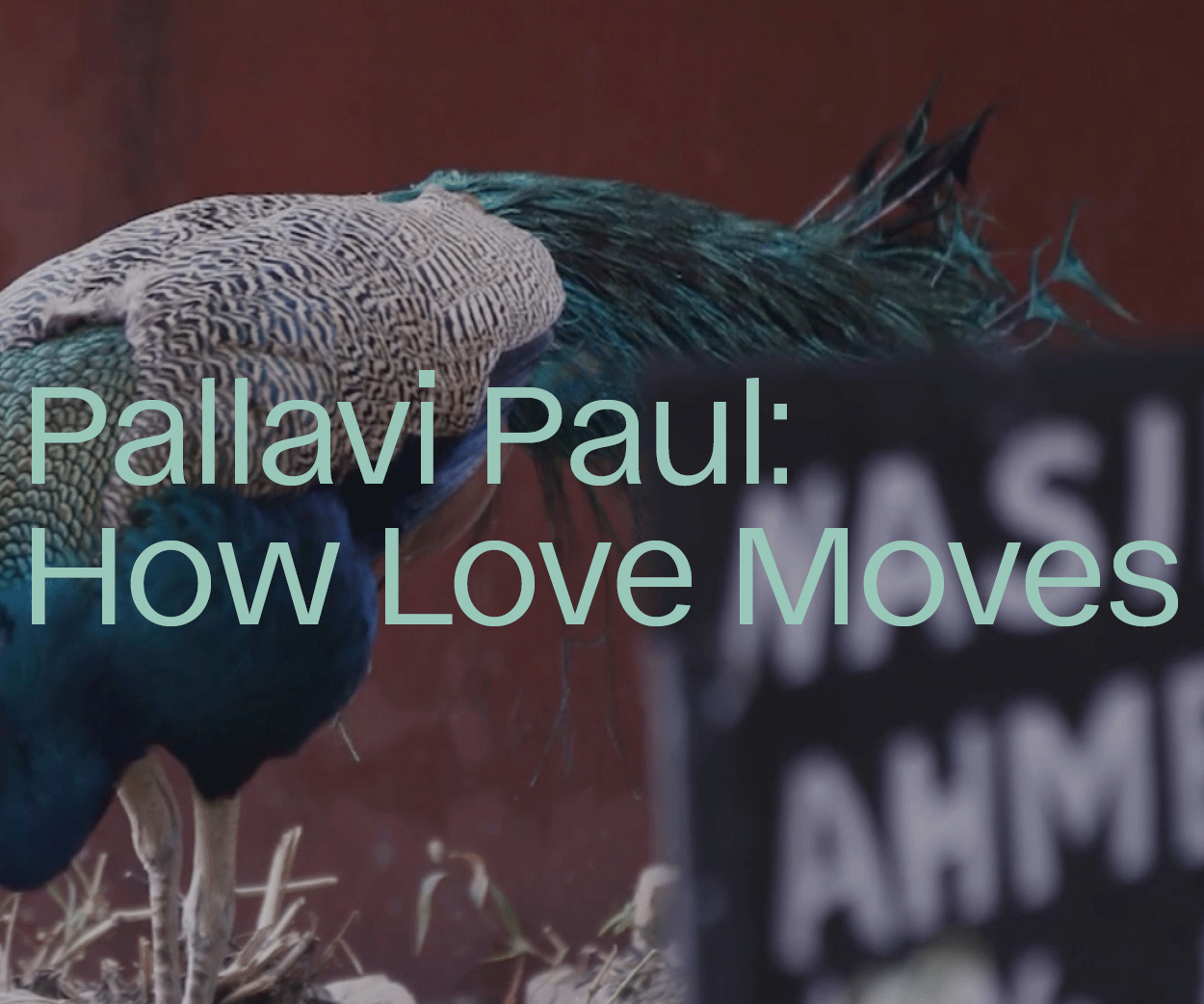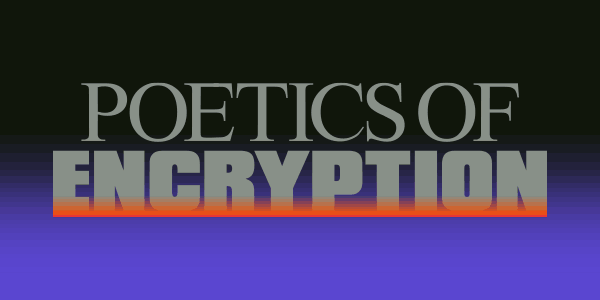Interview by Göksu Kunak in Berlin // Friday, Jan. 29, 2016
Focussing on intimate stories of ravishing characters, artist and filmmaker Matt Lambert conveys flashes of glee and affection. In Lambert’s world, intimacy is not only affiliated with sexuality. The filmmaker is a visual poet who expertly embroiders stories of youth subcultures, whether through a celebration of warmth and love or the heady contemplations of a confused teenager. Without a doubt, Berlin – the city of luscious moments – has been an influence on the artist.
For the trailer of Thomas Bo Nilsson’s performance installation MEAT (2014), the back room of a Späti, with slot machines and an Internet café, turns into a bizarre stage for a webcam striptease. Instead of an in-your-face approach, Lambert is political in subtext. In his short interview-film Essence & Offence (2015), Lambert converses with performance artist Juliane Huxtable about the language of misogyny and suppression. In addition to the many serendipitous encounters with queer characters in his films, he has also worked with well-known musicians Le1f and Mykki Blanco. Lately, Lambert has been portraying stories for fashion brands Marc Jacobs and Gucci, and as well as I-D magazine and Dazed.

Heile Gänsje set photography, Berlin 2013 // Courtesy of Matt Lambert
Göksu Kunak: How did you start to contemplate intimacy and sexuality in your work? In one interview, you mention violence as a theme as well.
Matt Lambert: Intimacy is so much more dynamic and complex than sexuality. At first, my work was quite autobiographical. I was using it as a way to revisit and investigate my youth, growing up; sexual confusion combined with buzz, fear and anxiety of the intense violence that was around me. Those were issues that really occupied my subconscious Through time, I developed the language of my craft that allowed me to be able to explore such ideas in a way that conveyed those feelings. Jannis Birsner, my husband, a friend of mine, Amy Binding − former photo editor of Sleek magazine − and other peers actually fingered on the idea of intimacy as an overarching theme in my work and this helped me to dig into it more myself.
I give importance to not objectifying the person I’m shooting and not reducing them into a sexual object by not being too referential or too fashion. This idea of intimacy with the person you’re looking at − not necessarily as the sexual, but like the intimacy between friends − comes naturally, through the relationships with the people that I am shooting.
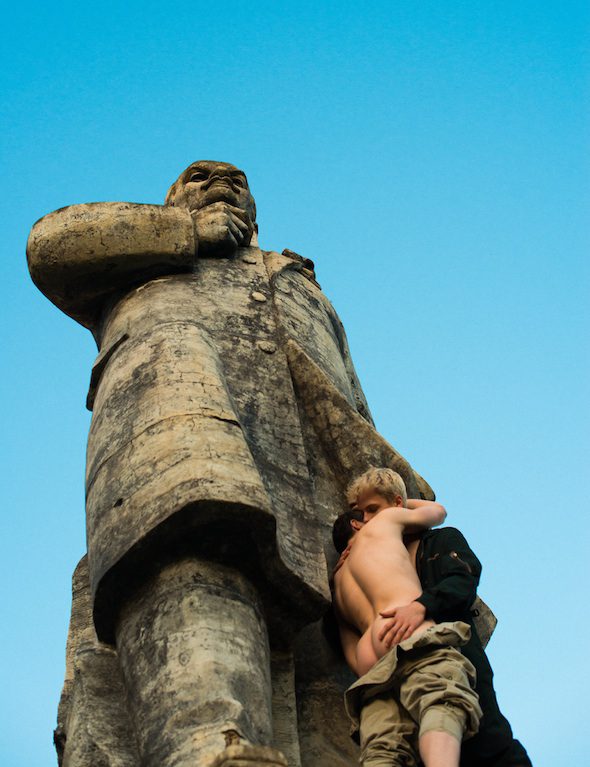
Matt Lambert for Rollacoaster Magazine, Wünsdorf 2015 // Courtesy of Matt Lambert
GK: Have you ever been censored?
ML: You know… In social platforms, of course, all the time: my Instagram account was taken down before and I’ve had several legal conversations with publications and publishers about how to walk that thin line. We are working on a book at the moment. It’s going to print in a week. It’s quite explicit. In Germany, there are different sales taxes based on art and porn: 19% for pornography and 8% for normal sales tax. So, the legal team is working on it. It’s not going to be censored, but it’s a matter of which category of work it falls into. For me, of course, it is art and it looks like we’ll end up there. A lot of these definitions go back to these ideas of subject vs. object.
GK: They know your work and that’s why they come to you…
ML: I mean, I’m not an idiot. If I’m doing a film for Gucci, I’m going to do something that is appropriate for that space. Then I can balance with my personal artwork that allows me to be free. In the US it is much more of a concern. Lately, we are working on a TV series. That was a big thing, for instance.
GK: Could you tell me more about the series?
ML: It is called We Are Lovers − a mix between fiction and documentary. It’s a hybrid format written and directed by myself, with two episodes co-written by a friend. At the moment we have five episodes. The stories take place in LA, NY, Berlin and London. It is mainly about love, sex, youth, intimacy and romance.
GK: How does it differ for you when you create a work for TV, fashion, a music video or, say, a collaboration like MEAT with Thomas Bo Nilsson?
ML: With fashion or any client job, you’re usually responding to brief. Just being able to do what you want all to time, isn’t challenging. After working on my own projects for a certain period, collaborating with a musician or a fashion designer became important for me. If you are a writer or a painter, you can be in an isolated space, but as a filmmaker, collaboration is a huge part of what I do and this helps me grow. As long as you build a team of people who are complementary, who appreciate similar ideas or have similar interests but don’t just agree with you all the time, it adds more dimensions to the work.
MEAT from matt lambert on Vimeo.
GK: What do you think about fashion photography: the way the market uses bodies vs. your approach?
ML: Sometimes, I look at the work that has been done in the field of fashion and I get angry. First of all, there is such a gross sense of appropriation within the fashion world that preys on authenticity. People and dynamic subcultures are treated just like a Pinterest. Especially being a gay photographer and filmmaker, I have a problem with the intense fetishization of straight men by other gay men working in the industry, meaning gay men, who cast, photograph and do editorials with straight men projecting homosexuality on to them. Those men who are extremely young, don’t often even understand the context or weight of how they are being used. This isn’t always, but so many problems I have fall into an overall lack of intimacy, honesty and connection. Sometimes it feels like it’d be more honest if people just did porn. Well, it’s an industry…
Any kind of exploitation of people irritates me. In my work, in almost all stories, like the book KEIM, the people I shoot completely understand the visual language that we are using, the ideas we are playing with, the play with provocation… In the new zine we are working on, everyone is aware, intelligent and present. Moreover, there’s always a humor and respect to the shoots themselves. I always hope the images posses the nuance of friendship and trust that exists in the room. Whereas, in the fashion world, if you are a big photographer shooting everyday, agencies are constantly providing new faces for you. In those circumstances, of course, you wouldn’t have the opportunity to build a close relationship. I almost never shoot models unless I’m obligated too. It can become cold and clinical. Perhaps a reaction to this is fashions seeming return to raw and intimate imagery.
GK: Almost five years ago, your first fashion film was for UMASAN. Now, how do you work as a filmmaker with a certain interest in fashion?
ML: That was a one-off and hadn’t much in fashion since this last year. Back then I had no interest in fashion at all, but the interest is growing. I tried, but it didn’t take. As soon as you try to construct something that you think is going to appeal to an industry, it very often doesn’t work. At least to me it is important to create honest work and stop giving a fuck about how or where it fits. I’ve never booked any commercial job because of the commercial jobs that I do. They get in touch with me because of my personal work- a short film, music video or my book. If I have to work in any commercial space, I’d rather work with a fashion brand than a car brand. At least you work with clients who have artistic sensitivity and can actually push you. I hate saying ‘clients’, it feels weird. So far, the past experiences have been quite collaborative.
I work in an open collaborative way. There’s trust, honesty and nothing to prove amongst the team. All projects are different but when it comes to musicians that I’m working with such as Patrick Wolf, Hercules and Love Affair or Austra, we have very long conversations before I begin writing. These projects take a long time to develop. At the moment I’m working with Mykki Blanco on a new track with Woodkid and it’s been the same. Collaboration with trust and lack of competition or pitch has always brought me my best results. We just finished a film a few weeks ago with Thomas Bo Nilsson. It’s a short film as a prologue to his new piece that will be shown in March in Vienna. With my cinematographer Cezary Zacharewicz, we have a mutual understanding. I come up with an idea and he’ll make it his own. Fundamentally, he understands the emotion and energy we want to get from the scene. We are totally in sync with that.
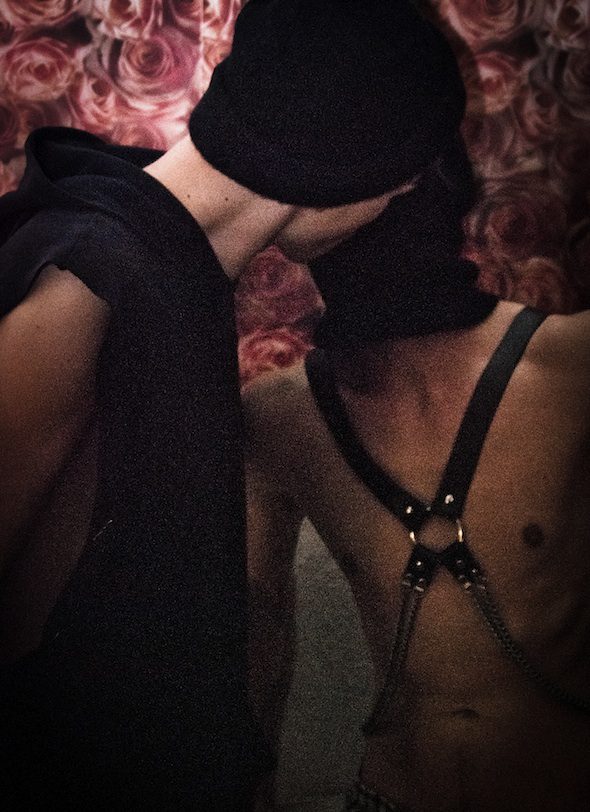
Matt Lambert, Jannis & P (Vitium Series), Neukölln 2012 // Courtesy of Matt Lambert
GK: What are your references? The influence of German expressionism in Fickmaschinen is obvious, for instance.
ML: German Expressionism is still a big influence in lot of ways, even though it’s not as aesthetically present as it was in earlier work. Other than that, I can say social media or people and things around me. Taking narratives of the moment and filtering them through a more timeless and classic approach. I’m always mixing different mediums and aesthetics that contradict, but compliment each other. The recent TV project mixes really rough, raw doc with formal, cinematic narrative. Snapchat meets cinema.
Lately, I am not intentionally looking around actually. I watch cartoons or blockbusters; things that are completely detached from this space that I’m working in. I’m always aware of what filmmaker friends are doing and that conscious or unconscious dialogue is a big inspiration.
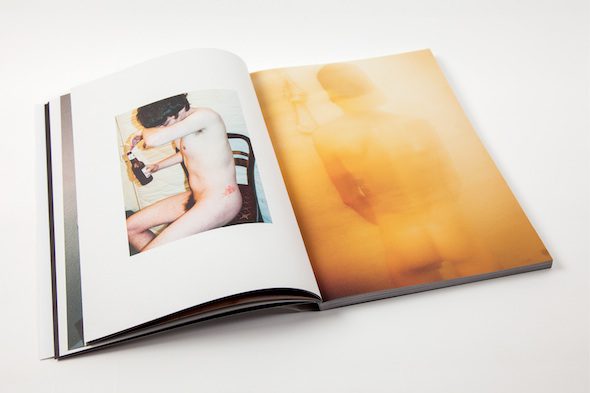
Matt Lambert, KEIM, Pogo Books, 2015 // Courtesy of Matt Lambert
GK: “Lambert is apolitical – he starts and ends with sex,” writes Jefferson Hack. Don’t you think that sex is so political, especially in the queer sense. For instance, thinking of your video for Hercules and Love Affair, My Offence, telling the story of how the gay scene in NY took the word cunt as an insult and changed the meaning. Or In Bloom, where another perspective on family is represented.
ML: To be honest, I don’t agree with that statement. I love the foreword he wrote in my book, KEIM. I guess what he meant by that is there isn’t a strong cultural content. They are just pure moments. I think it is political; to be able to present a contemporary youth culture in a city like Berlin that is ambiguous in its sexuality, intimacy. It doesn’t have to be loaded with queer theory. It’s the next step and that’s evolution. Social evolution is political.
I did a portrait series for I-D a couple of months ago depicting gay, bi, queer teens in Berlin. Some people were asking me why I shoot these kids that know nothing about queer culture. These kids exist because of the generations before them that were challenging gender norms. The fact that a teenager may not know anything about queer culture is a bummer. However, at the same time, isn’t that an interesting progress to have kids that aren’t defined by any kind of ideology and, yet, queer? They are quiet byproducts of the struggle that came generations prior.
In most I’m doing, there is an incredible depth of political and sociological thought. However, with the exception of the Hercules and Love Affair video that is overtly attempts to be provocative, I try to create something that is not pretentious, that’s accessible. And I love that something can be simultaneously sexy and intellectually provocative… Or that you can see something for it’s surface or dig into an endless abyss of context if you’re hungry for more.
Gucci: In Bloom from matt lambert on Vimeo.
Artist Info
www.dielamb.com
www.iconoclast.tv/de/home
Writer Info
Göksu Kunak is a freelance writer based in Berlin. Besides being one of the editors of mono.kultur, she contributes to Ibraaz as an Editorial Correspondent. Soon, she will be writing her PhD on queer chronopolitics and performance art/contemporary dance.


